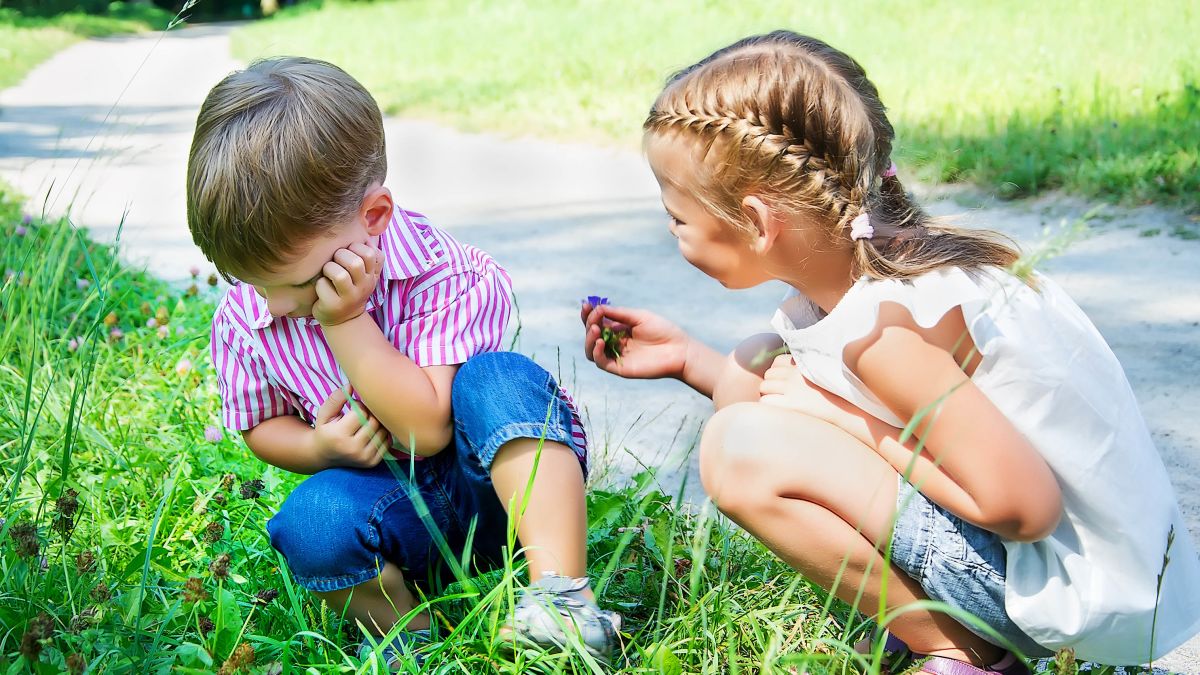Increasing and directing empathy in children from an early age is very important. With a sense of empathy, children can build and maintain bonds with those around them. As a parent, you don’t need to be afraid because increasing empathy in children is actually not difficult. Increasing empathy in children can be tried in simple ways. Try the various methods below to increase empathy in children, come on!

Empathy is the ability to digest feelings that everyone should have, even if it’s a child.
Empathy allows children to put themselves in someone else’s shoes and master the emotions of that person’s feelings.
Not only that, increasing empathy also means making children control other people’s circumstances.
Especially in the growth of children aged 6-9 years who are still meeting many people and have a great sense of curiosity, empathy is definitely needed.
Not only does it make the child feel indifferent, but he also really feels and thinks as if he is in that atmosphere.
Everyone, including children, should have the ability to empathize. Empathy is one of the most important things that everyone must have.
This is because increasing empathy in children helps build and maintain healthy and happy bonds with others.
Without a sense of empathy in the child, he tends to act indifferent to his surroundings.
Children also don’t want and can’t feel the pain that other people feel.
Moreover, children may also not show remorse after hurting other people.
As a result, children will often belittle, belittle, or ostracize others who are facing difficulties.
If your child develops without empathy, he will find it difficult to make friends because he tends to be shunned or disliked by his friends.
If this continues to happen, it will definitely affect the condition of his soul when he is old.
As children grow old, they will become more easily stressed, fearful, mentally stressed, so they are prone to do desperate things such as suicide.
Various methods of increasing empathy in children
Empathy is not something that can arise by itself since we are born.
Empathy will arise when parents and close friends help develop children from an early age.
Therefore, it takes time to increase empathy in children.
Well, if you are confused about how to increase empathy in children from an early age, here are some tips that you can try:
Make sure the child’s emotional needs are met
So that a child can feel and express empathy for others, make sure that their own emotional needs have been met first.
So as a parent, make sure you can share your child’s emotional support before they give it to others.
For example, if a child’s face shows sadness, you can comfort him to increase empathy. Not only that, you can also hug the child to make it safe.
Teach children how to manage negative emotions
Everyone has experienced negative emotions such as anger and jealousy. However, do not allow children to display these negative emotions over and over again.
From an early age, you must teach your child how to deal with negative emotions in positive ways.
This method can also help increase empathy in children from childhood.
When your child hits his friend, don’t scold him right away. Should break up the child’s fight and wait until he feels a bit calm.
Now, after feeling calm, slowly invite your child and his friend to have a dialogue about how they feel. Make sure you look at their descriptions carefully.
After that, explain to the child how to express their feelings in a more appropriate way.
For example, you can give an explanation such as, “If you are annoyed when Rani takes your doll, don’t hit it, Sis.”
Also convey the method that your child should try, “You can talk nicely with Rani for turns or play with the doll together.”
Not only instilling a sense of empathy, you also indirectly direct children to share.
Ask about the child’s feelings when his condition is not good
If your child doesn’t want to give in and accidentally hits his or her best friend or sibling, you need to give him an explanation.
Say that such a child’s behavior can hurt others physically or emotionally.
Talk about those feelings and help your child master those emotions and feelings.
If your child behaves well towards someone, such as trying to comfort a crying friend, say something else.
Meanwhile, if your child behaves badly or negatively, say the opposite.
Be a good role model
Children are great imitators. Sourced from the Harvard Graduate School of Education, all the good and bad things that children show cannot be separated from their tricks to imitate the attitudes of their parents or those around them.
Therefore, to increase the child’s sense of empathy, make sure you also share a good example.
Show him to be polite, kind and compassionate towards all living beings.
By helping family members, friends, neighbors, and even others who are facing difficulties, you have taught your child how to be an empathetic person.
Invite children to do meditation to increase empathy
The benefits of meditation in fact are not just to make children feel calm. On the other hand, meditation can also be a way to increase empathy in children.
Not often, a child’s self-confidence does not develop properly. This makes children choose to isolate themselves from other people and difficult to socialize because of their inferiority complex.
So that the self-confidence does not sink, children’s meditation can be an alternative to make this matter develop.
Not only self-confidence, meditation that children try can also increase a sense of empathy, comfort, and security.
Children who practice meditation tend to be happier, cultivate a sense of affection for others, and have greater self-confidence.
Moreover, quoting from the Healthy Children page, meditation is good for the health of the child’s body, mind, and soul.
Tell your children that everyone is basically the same
Increasing empathy in children can be tried with various methods, one of which is by inviting children to understand people who have limitations.
Although all people are basically the same, people with disabilities or disabilities have limitations that can be physical, cognitive, mental, sensory, emotional, growth, or some combination of these.
If your child asks and wonders why there are people who look different from him, you can explain to him that there are humans who are born different.
There are no humans who are exactly the same, both hair, skin, eyes, body, and so on.
But after all, all humans are the same regardless of their physical deficiencies.
Also tell him that everyone also does things in different ways.
Some people may be able to walk on both feet, some are using a wheelchair or cane.
Let them know that the condition of a person with a disability cannot be fully controlled by himself, his brother or sister, parents, or even a doctor.
Explain that wheelchairs for people with disabilities help them to move freely, just like a child’s legs help them to walk.
Interestingly again, empathizing with other people who have different circumstances from himself during this child’s physical growth period, also directs children to be grateful.
On the other hand, this method can also help shape the social spirit of children from childhood.
Get used to children not to mock and bully
You can also practice increasing empathy in children by directing your child so that they don’t mock their friends.
Give an interpretation to the child that planning to hurt other people’s feelings, whether in any form, is a wrong action.
Teach your child to quickly apologize when they intentionally or unintentionally hurl insults or intimidation at others.
It means for your child to recognize that anyone, especially someone who looks or acts differently also has the same feelings as him.
So, from an early age, children can master that everyone deserves to be treated with kindness and respect, including himself.
Directing and increasing empathy in children since childhood is not easy.
Children may often ask questions about various things that are happening in the surrounding area.
Try to explain in language that is easy for children to understand so that he really understands that empathy needs to be present and carried over to age.

